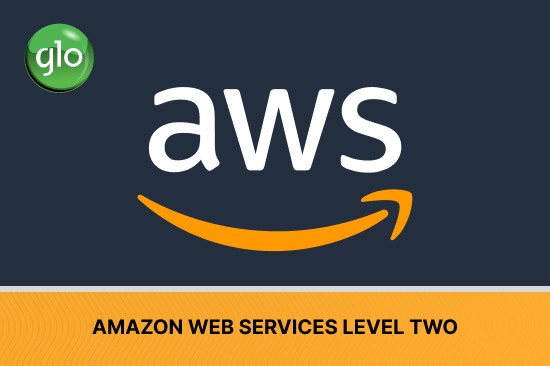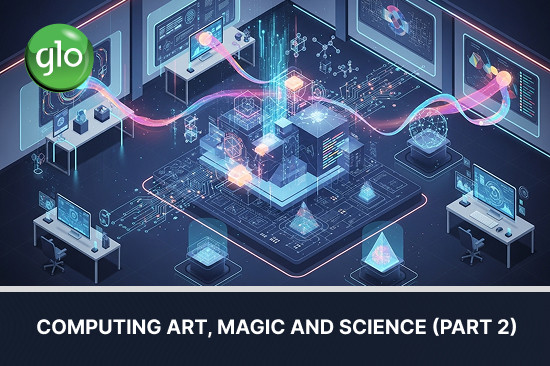
CAM 2 is a multidisciplinary course that continues the exploration of computing as both a technical and creative discipline. Building on concepts from introductory computing (CAM 1), this course delves deeper into how computer science intersects with artistic expression, scientific reasoning, and imaginative problem-solving. Students engage with programming, digital media, logic, and algorithmic thinking to design interactive projects that demonstrate the "magic" behind technology.
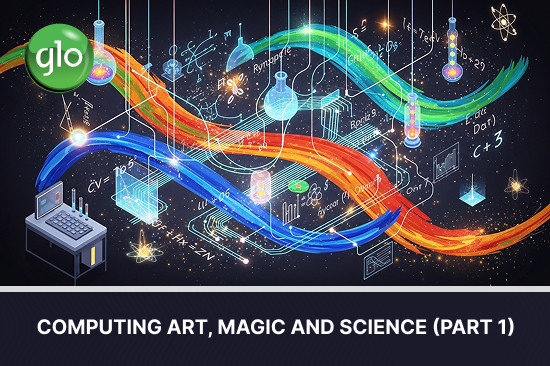
CAMS Part 1 is a beginner-friendly gateway to computing, blending theory and hands-on coding through the Eiffel programming language. It builds a solid foundation in object‑oriented design, reliable software practices, and computational thinking. Once completed, you're fully prepared to advance to Part 2 and tackle more advanced software engineering topics.
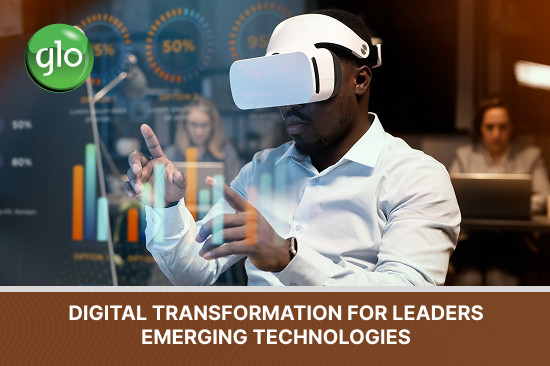
DIGITAL TRANSFORMATION COURSE FOR LEADERS- EMERGING TECHNOLOGY
English and French
GLO COURSES
NGN 10,000.00
This course empowers leaders to understand, evaluate, and strategically apply emerging technologies to drive digital transformation. Participants will explore key innovations such as artificial intelligence, blockchain, the Internet of Things (IoT), cloud computing, and data analytics. Designed for decision-makers, the course provides insight into how these technologies impact business models, operations, and customer experience. Leaders will gain the knowledge to identify opportunities, mitigate risks, and lead technology-driven change in a rapidly evolving digital landscape.
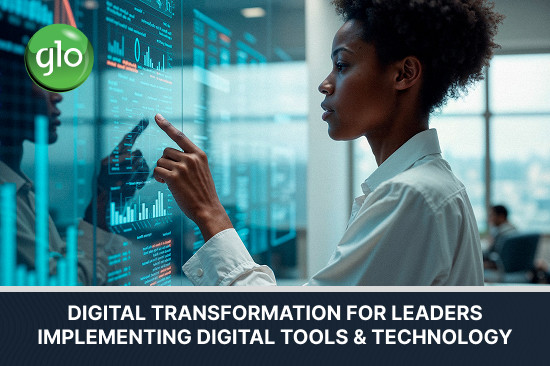
DIGITAL TRANSFORMATION COURSE FOR LEADERS- IMPLENENTATION DIGITAL TOOLS AND TECHNOLOGY
English and French
GLO COURSES
NGN 5,000.00
The Digital Transformation Course for Leaders focuses on equipping executives, managers, and decision-makers with the strategic knowledge and practical tools needed to lead successful digital transformation initiatives. This course emphasizes the implementation of digital tools and technologies to drive innovation, operational efficiency, and competitive advantage.
Participants will explore key areas such as digital strategy development, emerging technologies (e.g., AI, cloud computing, IoT), change management, data-driven decision-making, and organizational alignment. Real-world case studies and hands-on projects help bridge the gap between theory and practice.
By the end of the course, leaders will be able to:
-
Identify and deploy appropriate digital tools for various business functions.
-
Lead digital transformation efforts aligned with organizational goals.
-
Foster a culture of innovation and agility.
-
Manage risks and overcome resistance to change.

DIGITAL TRANSFORMATION COURSE FOR LEADERS-CHANGE MANAGEMENT AND CULTURE
English and French
GLO COURSES
NGN 5,000.00
This course equips leaders with the knowledge and tools to drive successful digital transformation by focusing on two critical pillars: change management and organizational culture. Participants will learn how to lead change initiatives, foster a culture of innovation and adaptability, and align teams around digital strategies. Through real-world case studies, interactive discussions, and strategic frameworks, leaders will gain practical skills to overcome resistance, manage stakeholder expectations, and build resilient, future-ready organizations in an era of rapid technological evolution.
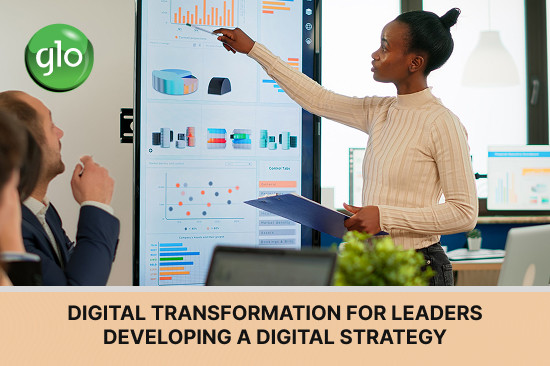
DIGITAL TRANSFORMATION COURSE FOR LEADERS - DEVELOPING A DIGITAL STRATEGY
English and French
GLO COURSES
NGN 5,000.00
This course empowers business leaders with the strategic tools and frameworks needed to design and implement a successful digital transformation roadmap. It focuses on aligning digital initiatives with organizational goals, fostering innovation, and navigating the evolving digital landscape. Participants will learn how to evaluate current digital capabilities, identify strategic opportunities, and create a comprehensive digital strategy that drives long-term value.

DIGITAL TRANSFORMATION COURSE FOR LEADERS - MEASURING SUCCESS AND CASE STUDIES
English and French
GLO COURSES
NGN 5,000.00
This course is designed to equip leaders and decision-makers with the knowledge and tools needed to evaluate the success of digital transformation initiatives. It focuses on understanding key performance indicators (KPIs), strategic goals, and value metrics that define successful transformation in the digital age. Participants will explore real-world case studies from various industries to examine best practices, challenges, and outcomes of digital transformation efforts.

DIGITAL TRANSFORMATION COURSE FOR LEADERS - LEADERSHIP SKILLS FOR DIGITAL CHANGE
English and French
GLO COURSES
NGN 5,000.00
equips leaders with the advanced skills needed to successfully guide their organizations through digital transformation. Focusing on leadership, change management, and digital strategy alignment, this course helps leaders foster innovation, manage resistance, and build agile, future-ready teams. Ideal for mid to senior-level professionals, it prepares participants to lead with confidence in dynamic, technology-driven environments.
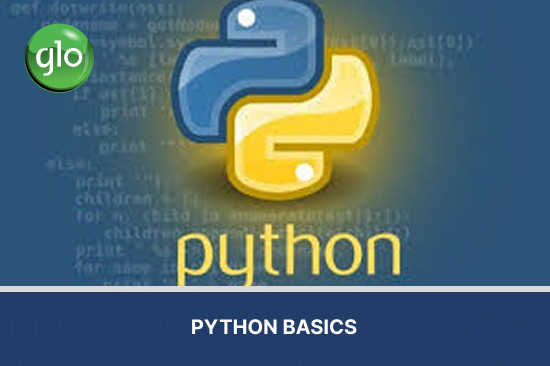
This introductory course teaches the fundamentals of Python programming. It covers basic syntax, variables, data types (strings, integers, lists, dictionaries), control flow (if statements, loops), functions, and simple input/output. Learners will also write and run basic Python scripts. The course is ideal for beginners with no prior coding experience and provides a strong foundation for data analysis, web development, and automation.

This beginner-level course introduces the core concepts of computer networking. Topics include types of networks (LAN, WAN, MAN), IP addressing, MAC addresses, DNS, DHCP, routers, switches, ports, and protocols like TCP/IP, HTTP, FTP, and HTTPS. Learners will also understand how data travels across networks and how to troubleshoot basic network issues. Ideal for those starting a career in IT, cybersecurity, or cloud computing.

This introductory course provides a solid foundation in using the Linux operating system. It covers essential topics such as Linux distributions, the command-line interface (CLI), file system navigation, file and directory management, user permissions, basic shell commands, and simple scripting. Learners will gain hands-on experience in performing everyday tasks in a Linux environment—crucial for system administration, development, and DevOps roles.
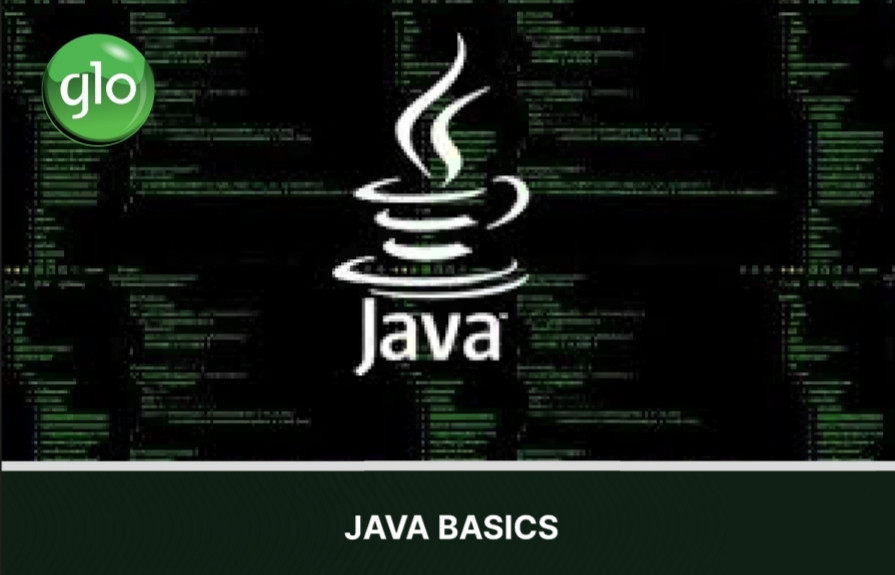
This beginner-level course introduces the fundamentals of Java programming. It covers Java syntax, data types, variables, operators, control structures (if, loops), methods, arrays, and object-oriented programming concepts such as classes and objects. Learners will also understand how to write, compile, and run Java programs. The course lays a solid foundation for advanced Java development and applications.

This introductory course equips leaders and managers with the foundational understanding of digital transformation. It explores how emerging technologies are reshaping industries, the mindset shifts required for successful digital leadership, and strategies for driving innovation and organizational change. Topics include digital strategy, customer experience, agile thinking, data-driven decision-making, and the role of leadership in digital disruption.
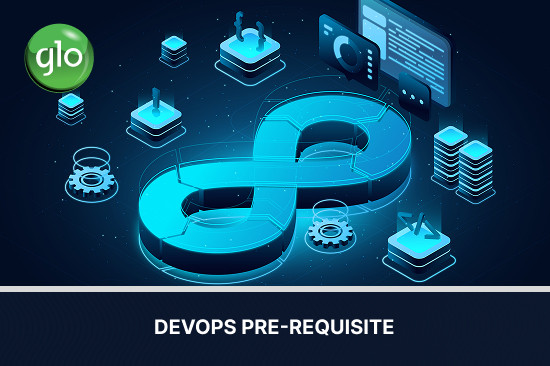
This foundational course introduces the core concepts and essential technical skills needed before diving into DevOps. It covers basic Linux commands, Git version control, scripting (Shell/Python), networking fundamentals, cloud basics, and an introduction to containers using Docker. By the end, learners will be equipped with the practical knowledge required to start a full DevOps journey.

Smartphone and mobile app literacy courses are educational programs designed to help individuals develop the knowledge and practical skills needed to confidently use smartphones and mobile applications in everyday life. These courses are especially valuable for beginners, older adults, or anyone looking to improve their digital skills.
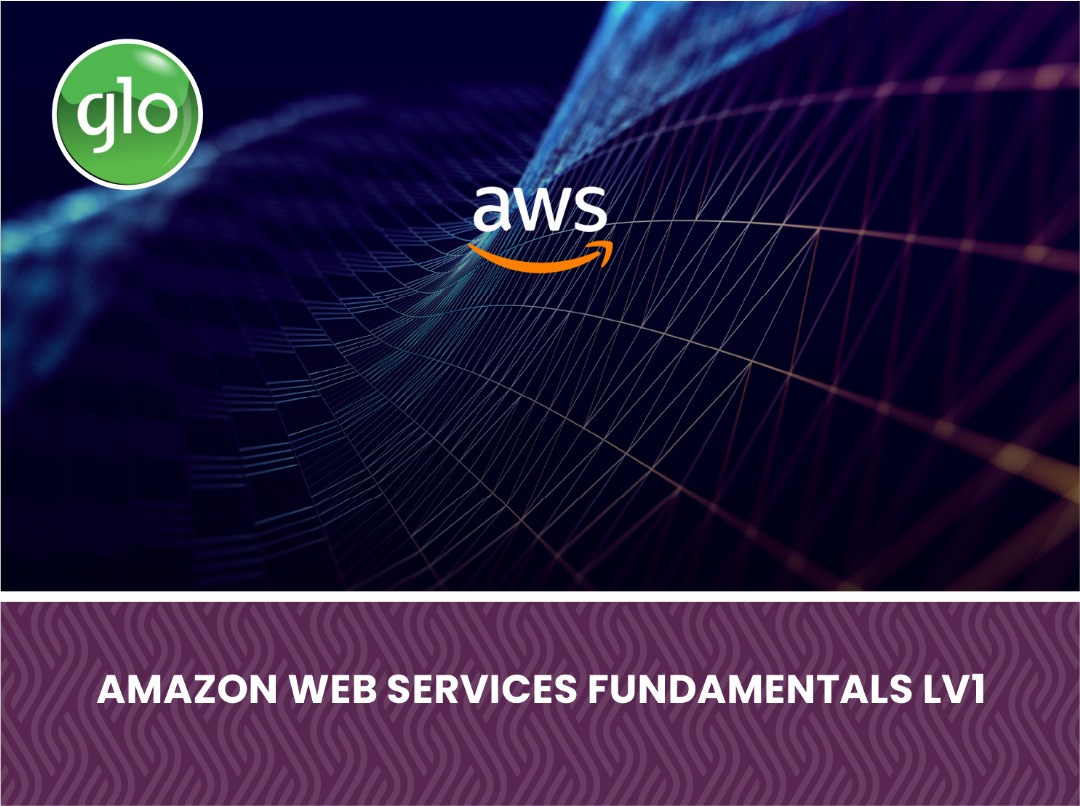
The AWS Fundamentals course introduces learners to the core concepts, services, and infrastructure of Amazon Web Services, the world’s leading cloud computing platform. It is designed for beginners with little or no cloud experience and provides foundational knowledge needed to start working with AWS or preparing for certifications like AWS Certified Cloud Practitioner.

This course is designed to introduce beginners to the world of social media. It covers the basics of popular platforms such as Facebook, Instagram, X (formerly Twitter), LinkedIn, and others. Students will learn how to create and manage accounts, post content, connect with others, and understand platform features and settings. The course also focuses on digital etiquette, privacy settings, and how to stay safe while using social media. By the end of the course, learners will feel confident navigating social media platforms for personal, educational, or business use.

This course introduces students to the fundamentals of the internet and its practical uses in everyday life, education, and work. Designed for beginners, it covers the history, structure, and function of the internet, including web browsing, search engines, email, and online communication tools. Students will learn how to navigate websites, use common internet applications, and stay safe online. Emphasis is placed on developing digital literacy, understanding online privacy and security, and using the internet responsibly and effectively.
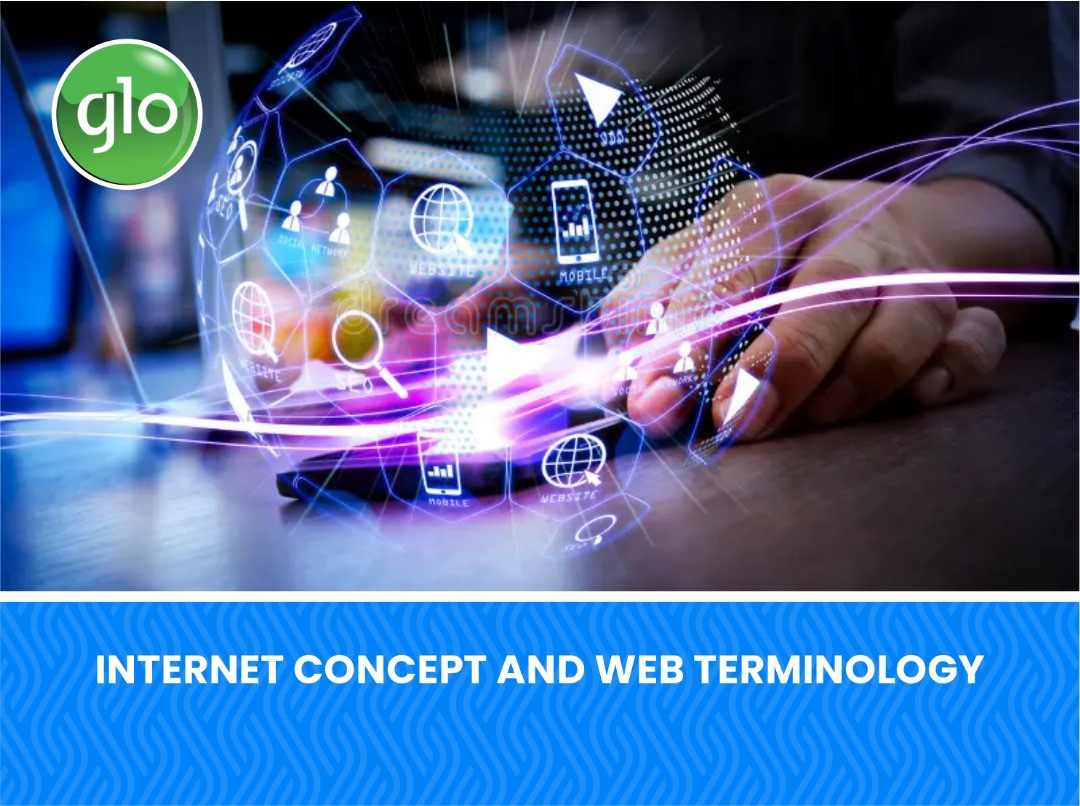
This course provides a foundational understanding of the Internet and the World Wide Web, focusing on key concepts, technologies, and terminology. Students will explore how the Internet functions, how websites are accessed and structured, and the essential components of online communication and web development. The course introduces key terms such as IP address, domain name, web browser, URL, and HTML, and explains how these elements work together to deliver information across the globe.
Designed for beginners, this course equips learners with the knowledge needed to navigate, understand, and use the Internet effectively in academic, professional, and everyday contexts.

